Emergency Plumbers The (7) Common Plumbing Myths We Hear
Emergency Plumbers & The top 7 plumbing Myths
Emergency Plumbing Myths 9 Minute Read
When common plumbing myths are believed for so long, several plumbing problems will begin to arise. If you believe in some of the most common plumbing myths, then you could be doing harm to your pipes without knowing. When this happens, sudden and unexpected plumbing emergencies arise.
It’s in these moments when we need emergency plumbers by our side! With the experience in their back pockets, there are several plumbing myths that emergency plumbers hear about and hurry to fix on a consistent basis. Although you have the help of emergency plumbers at any given moment, it’s best to know about these common myths.
Knowing what these myths are will prevent your plumbing system from encountering a few unnecessary problems. Are you ready to separate fact from fiction? Continue reading below for our list of plumbing myths!
1. Flushable Wipes Are Safe
Just because a pack of wipes says, “flushable” on them, doesn’t mean they’re safe for your toilet. Many people believe that using flushable wipes on a consistent basis is safe for their toilets because the wipes are labelled as “flushable.”
However, no matter if the wipes state that they’re flushable or not, they don’t break down as easily as toilet tissue does.
Flushable wipes and in particular baby wipes are some of the main reasons for clogged pipes. You should never flush baby wipes down the toilet, and you should restrict how often you flush even the flushable ones.
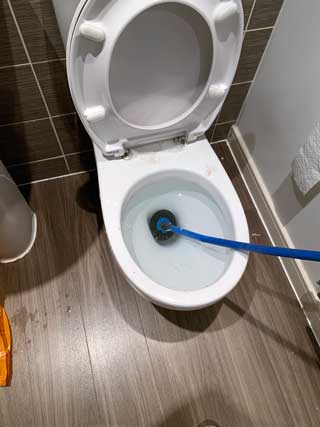
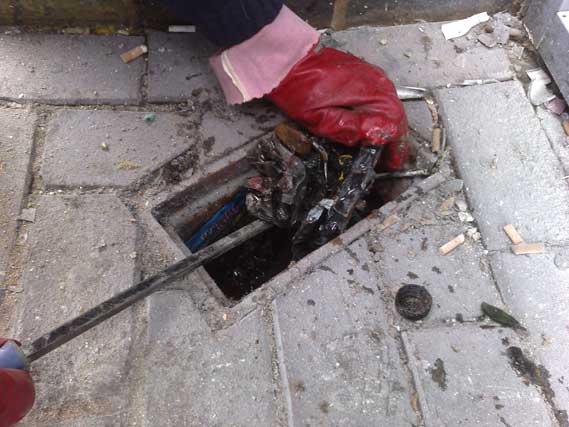
2. Hot Water Mixed With Grease Will Help It Go Down
You’re most likely aware that pouring any type of grease down your drains is a big “No-No.” When grease is poured down the drain, even in its liquid state, it’ll eventually clog the drain. As the grease begins to cool, it hardens and solidifies sticking to pipework walls.
When this happens, the drain’s can become clogged immediately or over time. Some believe that pouring hot water mixed with the grease down the drain will help it go down. This is a myth as the water and the crease will always cool down.
The hot water will help the grease go down at first but pushes the problem further into the drainage system before the grease solidifies, which it will. This creates a clog so far down the drain that you won’t be able to reach it with a plumbing snake. This, in turn, will lead to higher repair costs.
3. Strange Noises From Boilers & Water Heaters Mean it is going to Explode.
Boilers and hot water heaters all make a few noises here and there. It’s a common belief that when you hear loud noises coming from the water heater, then this means it’s going to explode.
Hearing these loud rumbling noises doesn’t mean you need to run for cover due to a possible explosion. What it does mean, however, is that it’s time to contact a professional plumber who can address the issue for you. A rumbling noise is usually due to a build-up of sediment on the bottom of the tank.
Your boiler or hot water heater most likely needs a good cleaning and service or possible replacement if it’s too late.
Modern boilers and hot water heaters in the United Kingdon have many safety features built into their designs. Therefore it is extremely unlikely that one would explode.
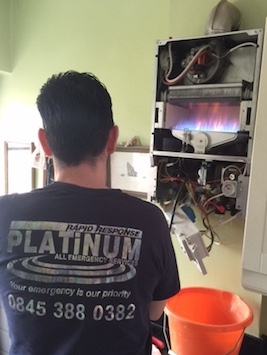
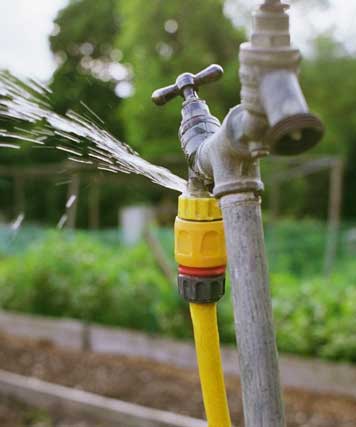
4. Bleach Tablets Will Keep My Toilet Clean
Are you familiar with those toilet bleach tablets that you either hang from the inside of the toilet or place into the tank? Those bleach tablets are often seen as a common way to keep toilets clean, however, they can wreak havoc on your plumbing.
The bleach tablets that you mount onto the toilet rim can often become dislodged, which sometimes results in them getting stuck in the toilet waste pipework. This can sometimes lead to blockages that can only be cleared by removal of the toilet cistern and pan.
Although those tablets might clean your toilet upon first use, over time, the bleach in the tablets that are placed into your toilet cistern will begin to corrode your toilet! They also slowly damage plastic toilet parts leaving them very brittle.
It’s still safe to use bleach when cleaning your toilet, but the bleach shouldn’t be in your toilet for more than a few minutes before being rinsed off.
5. A Slow-Leaking tap Isn’t a Concern
When there’s a big leak inside your home or business, the first thing you do is call someone to correct the issue. When there’s a small leak, however, many people tend to ignore it or blow it off. A slow-leaking tap should be treated with as much care as a fast-leaking one.
It’s a common myth to believe that a slow-leaking tap isn’t a concern. We often hear customers say they thought it would eventually stop. A slow-leaking tap will, in time, cause an increase on your water bill. It’s also a sign of some type of problem that should be addressed as soon as possible to prevent bigger problems in the future. Slow water leaks only get bigger over time!
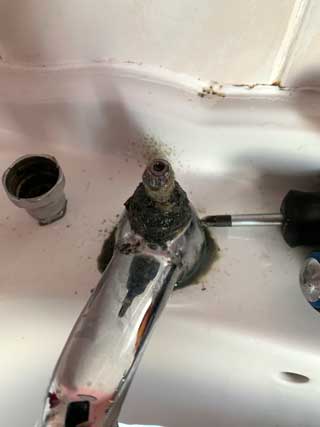
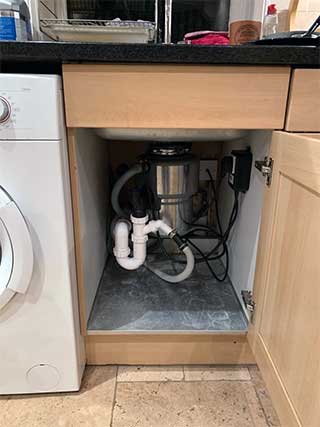
6. Almost Anything Can Go in the Waste Disposal
Waste disposal units are a true gift for homeowners. The waste disposal makes kitchen cleanup time a breeze. The waste disposal cannot accept all forms of waste, though!
Only certain food items should be placed down the disposal and never actual rubbish. Avoid placing bones, grease, expanding food such as pasta, and other non-waste disposal safe items down the disposal.
If you do place items down the disposal that shouldn’t go in it, you could cause a clog or create damage to the disposal and your homes plumbing.
7. Most Plumbing Issues Can Be Fixed at Home
The last plumbing myth that we want to address is that many people believe that most plumbing issues can be fixed easily at home.
Even some of the smallest plumbing tasks should be overviewed by the professionals. It takes an average of 3 – 5 years to train a professional plumber in the United Kingdom. It can take even longer if they go onto working on heating systems and gas. Most people, unfortunately, do not give plumbers the credit they deserve. With plumbing DIY homeowners can come unstuck fast sometimes causing thousands of pounds in damage to their homes.
If you ever do feel you’re able to fix a plumbing issue yourself, be sure to contact the professionals for advice before taking on the job.
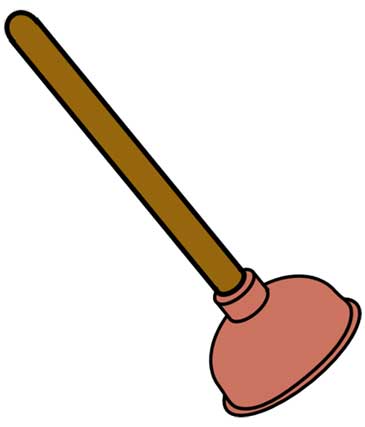
It’s Time to Call the Emergency Plumbers!
Keeping these plumbing myths in mind should help you stay out of several emergency plumbing situations. However, when some plumbing trouble can’t be avoided, it’s time to call the emergency plumbers!
Emergency plumbers are licensed and insured and are there to help you 24 hours a day, 365 days out of the year!
Contact us today if you’re in need of plumbing services now!
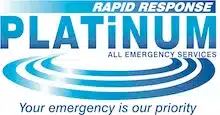
Nice Blog!! The content you have shared is very elaborative and informative. Thanks a lot for sharing such a great piece of knowledge with us.
Thank you very much for your comment. If you wish to be notified about future posts, please subscribe.